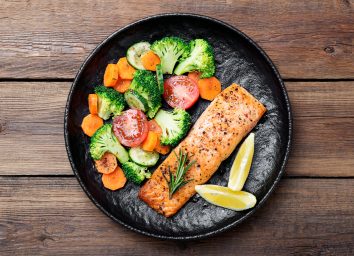Eating Habits to Avoid For Better Heart Health After 50, Say Dietitians

Throughout the life cycle, nutrient needs vary due to health concerns that are more prominent at different stages of life. At 50 years of age and older, certain health issues become more common, like osteoporosis, heart disease, muscle loss, and diverticulosis.
While genetic factors may influence each of these conditions, your lifestyle, including food choices and exercise, will go a long way in protecting you against developing any number of health issues, including those previously listed. When it comes to heart health in particular, there is much to be said about the influence of your eating habits.
Here are four eating habits to avoid for better heart health after 50. Read on, and for more on how to eat healthy, don't miss The #1 Best Juice to Drive Every Day, Says Science.
Limit sugar intake
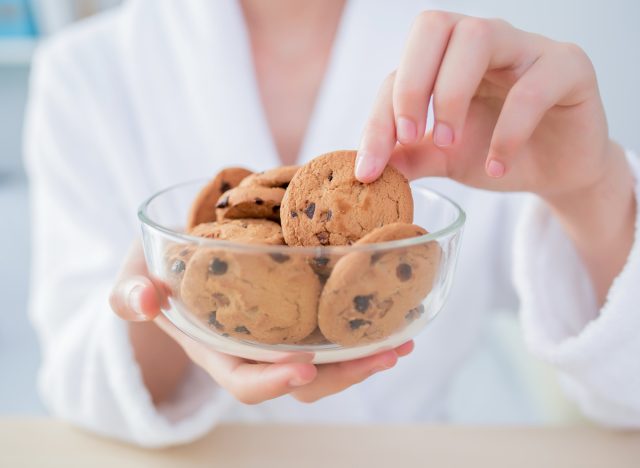
Refined sugar, like that found in soda, candy, cereal, and other processed food items is thought to negatively impact health, from contributing to inflammation and obesity to diabetes and heart health. In fact, an article published in Harvard Health Publishing notes that a high sugar diet is associated with a greater risk of dying from heart disease.
The American Heart Association recommends women consume no more than 6 teaspoons of sugar per day, which is equivalent to about 100 calories, while men should keep their added sugar intake to fewer than 9 teaspoons, or 150 calories, per day.
Eat This! Tip: To reduce your added sugar intake, try swapping white sugar for zero-calorie alternatives, like stevia and monk fruit, cut your potions of dessert foods in half, and swap soda for unsweetened sparkling water or tea.
Avoid too much animal fat
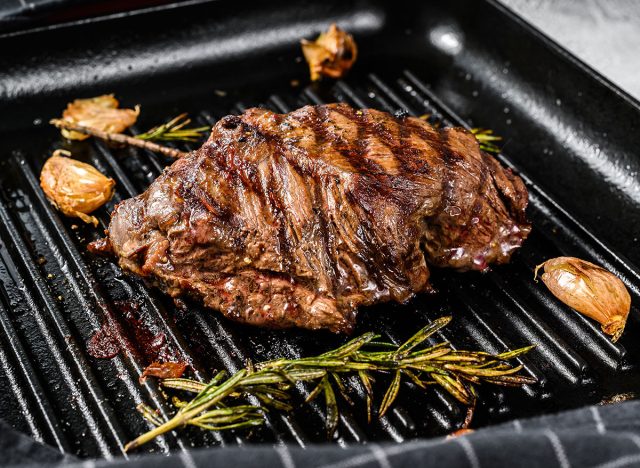
While meat is a great source of protein and provides essential amino acids, vitamins, and minerals, some animal proteins also come along with high amounts of saturated fat and cholesterol. According to the American Heart Association, eating too much saturated fat can elevate LDL cholesterol levels, which may increase your risk for heart disease and stroke if LDL levels become too high.
Eat This! Tip: To reduce your intake of saturated fat, swap fattier cuts, like beef and pork, for leaner options, like poultry, fish, and low-fat dairy. Additionally, when you do have fattier cuts of meat, trim as much visible fat as possible to reduce your intake of saturated fat and cholesterol.
Don't skip fibrous foods
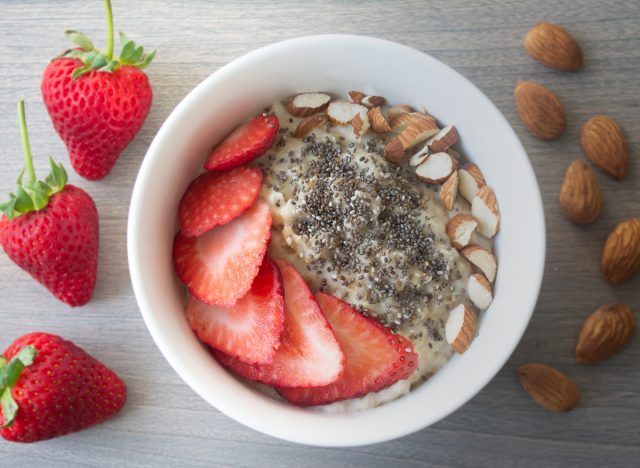
Fiber is a nutrient that can be found in fruits, vegetables, whole grains, nuts, seeds, and legumes. While you may often hear about fiber in relation to digestive health, fiber is also known to improve satiety and it may help lower blood cholesterol levels, too.
In particular, soluble fiber, which is found in oats, berries, and beans is especially helpful in reducing blood cholesterol levels by binding to cholesterol-containing compounds in the intestine to reduce the amount being absorbed into your blood.
Eat This! Tip: The National Lipid Association states that eating 5 to 10 grams of soluble fiber a day can help lower LDL cholesterol by 5 to 11 points. This can be achieved with a bowl of oatmeal topped with chia seeds for breakfast, a handful of berries for a snack, a sandwich with whole-grain bread for lunch, and black beans on a large taco salad.
Avoid eating fast food
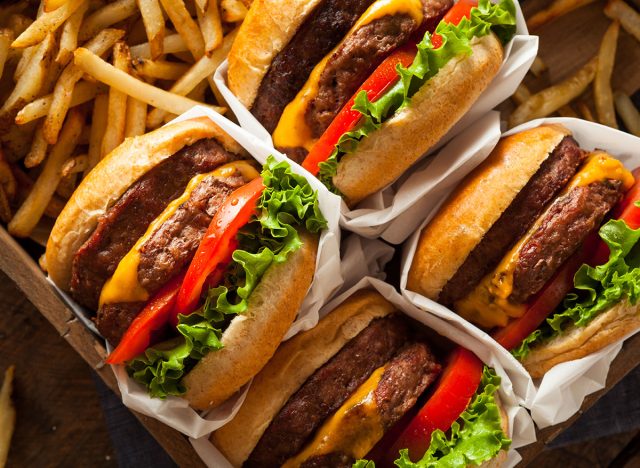
While the convenience of a drive-thru is appealing, the majority of the items offered at fast-food restaurants are high in sodium, fat, and calories. For those who have high blood pressure, sodium may contribute to these high readings that can weaken or damage your heart over time.
Additionally, the vegetable oils commonly used to fry items on a fast-food menu have fewer health benefits compared to healthier oil you may use at home, like olive and avocado. This high fat content will drive up the calories of items, oftentimes creating meals that are well over 1,000 calories.
A high calorie intake is more likely to lead to excess weight gain which can put additional stress on your heart and other vital organs.
Eat This! Tip: If you do end up picking up fast food for a meal, go with lighter options, like a grilled chicken sandwich or salad using only a portion of the dressing.
For more, check out these Drinking Habits Experts Warn You Should Avoid If You're Over 50.


